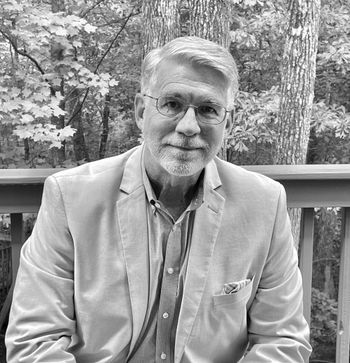PROF. JENKINS: Harvard's leadership lesson on how to be awful
Claudine Gay's leadership award comes after reports of the former Harvard University president plagiarizing scholarship and quashing contrary views.
Rob Jenkins is a Higher Education Fellow with Campus Reform and a tenured associate professor of English at Georgia State University - Perimeter College. In a career spanning more than three decades at five different institutions, he has served as a head men’s basketball coach, an athletic director, a department chair, and an academic dean, as well as a faculty member. Jenkins’ opinions are his own and do not represent those of his employer.
In The 9 Virtues of Exceptional Leaders, my co-author and I explore several types of courage leaders must have—the courage to take risks, the courage to buck trends, the courage to confront.
However, I don’t remember writing about the courage to plagiarize, the courage to kowtow to pro-terrorist protesters, the courage to dissemble during Congressional testimony, the courage to cover for a colleague who commits academic fraud, or the courage to persecute one who tells inconvenient truths.
I guess we must have overlooked those. Perhaps we should include them in the second edition.
Because that is clearly the lesson from Harvard University, that august incubator of great American leaders like George W. Bush and Barack Obama. According to Campus Reform, Harvard’s Black Alumni Association recently honored former president Claudine Gay with its “Leadership and Courage” award.
This is the same Claudine Gay who “stepped down” earlier this year amid revelations she had plagiarized large sections of her doctoral dissertation and other “scholarly” papers. Fortunately, Harvard’s administration “investigated” the matter and assured us Gay hadn’t really plagiarized. She was merely guilty of “inadequate citation” and “duplicative language.”
Now THAT’S leadership.
The plagiarism scandal—excuse me, the duplicative language misunderstanding—came on the heels of Gay’s disastrous testimony before Congress last November, when she shared the spotlight with two other “elite” university presidents.
As Campus Reform reported at the time, Gay and her colleagues, under direct questioning from Rep. Elise Stefanik (R, NY), refused to say whether pro-Hamas protestors’ calls for genocide against Jews violated any campus policies, insisting that it “depended on the context.”
Their mealy-mouthed non-answers led to calls for all three presidents to resign. Two of them did, in fairly short order, including Gay and Liz Magill of the University of Pennsylvania, both of whom landed softly in cushy faculty sinecures at grossly inflated salaries.
But that wasn’t the first time Gay had showed exemplary leadership. According to investigative journalist Chris Brunet, in 2018, while serving as Dean of Social Sciences at Harvard, she helped cover up allegations of research misconduct against a faculty member, Ryan Enos, who was also a political ally, working in the same sub-field of “racial threat theory.”
“This scandal was Gay’s ticket to failing upward,” writes Brunet. “A previously scheduled dean search was cancelled to ensure this Enos blunder stayed swept under the rug, [and] Gay was abruptly fast-tracked from Dean of Social Sciences to Dean of Faculty.”
A year later, in her new role, she suspended a black economics professor, Roland Fryer, for allegedly engaging in “unwelcome conduct of a sexual nature,” apparently having to do with remarks he’d made to colleagues.
What makes this suspension suspect is that in 2016, Fryer had published a controversial paper titled “An Empirical Analysis of Racial Differences in Police Use of Force.” Examining data from the federal government and 10 large police departments, Fryer found that, while police were somewhat more likely to use force against black suspects, they were no more likely to use deadly force.
In other words, Fryer found no evidence to support the narrative that police shootings disproportionately target black suspects.
A 2022 mini-documentary titled “Harvard Canceled Its Best Black Professor. Why?” sheds additional light on this incident, demonstrating that, in Brunet’s words, “Claudine Gay was the one who personally led the witch-hunt against Fryer.
“This documentary revealed,” says Brunet, “that Harvard’s own Title IX office dictated a punishment of ‘workplace sensitivity training’ for Fryer, but Gay overruled them and instead set out to destroy Fryer’s career and asked the president of the school to revoke Roland’s tenure.”
She didn’t succeed. Fryer was suspended but not fired and has since returned to campus. But the message was clear: “Support me and my racialist agenda and you can get away with pretty much anything. Challenge me and my preconceived notions and I’ll end your career.”
No wonder Gay won the Leadership and Courage Award. She’s obviously a role model, exhibiting the most important type of courage any academic leader can have: the courage to quash dissent.
Editorials and op-eds reflect the opinion of the authors and not necessarily that of Campus Reform or the Leadership Institute.

